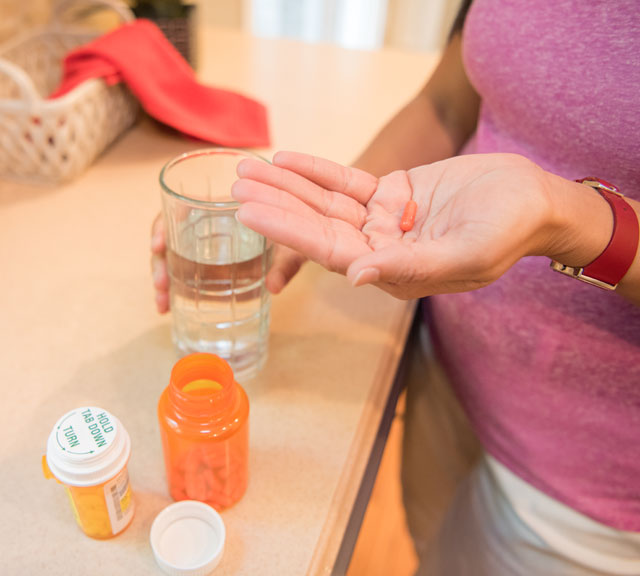Family History and Depression: What’s the Link?

Answer a few questions and we'll provide you with a list of primary care providers that best fit your needs.
Is depression inherited? Doctors agree that family history is one piece of the puzzle.
“What we mean by a hereditary link or genetics is a predisposition to depression,” says neuroscientist Fadi Tayim, PhD, Clinical Neuroscience Institute.
“If you can isolate factors that are perpetuating symptoms of depression, then you’re gold. It makes the symptoms more manageable.”
He says just because your parent or sibling has depression doesn’t mean that you will have it. It does mean you’re at a greater risk of developing depressive symptoms.
Dr. Tayim further explains that in addition to genetic predisposition, it generally takes a triggering event in your environment or relationships to lead to a depressive episode.
Several factors contribute to depression:
- Loss or stress due to a death, job loss, abuse, sudden change in finances or other life-changing event
- Family history of depression
- Drugs or alcohol, which can affect the brain’s chemical balance
- Medicines for high blood pressure, cancer, pain or other health problems, which can cause depression as a side effect
- Physical illness, especially prolonged or severe illness can cause changes in your brain that lead to depression
- Hormones, especially when levels change rapidly, can trigger depression. Women may experience this just before a period, after giving birth or during menopause
“If you can isolate factors that are perpetuating symptoms of depression, then you’re gold. It makes the symptoms more manageable,” Dr. Tayim states.
What You Can Do if You Have a Family History of Depression

Not every person with a family history of depression will have depressive episodes. Knowing that your family history puts you at higher risk of becoming depressed may give you greater incentive to control factors to lessen that tendency.
Dr. Tayim recommends these simple practices to boost your mood and potentially reduce your risk of becoming depressed:
- Do mindfulness therapy, such as meditation or guided imagery, to ground you and help you cope with stressful events. Numerous apps and online resources offer guidance if you don’t know how to start
- Cultivate flexibility and adaptability to stressful situations, environments or relationships. Practice deep breathing and other stress reduction techniques
- Exercise, whether it’s a leisurely stroll or something more aerobic. (Always check with your doctor first to establish a safe level of exercise for you.)
- Get outside to enjoy nature and sunshine
Dr. Tayim believes effective stress management skills are a key ingredient for preventing depression. “Individuals with a high tolerance for stress but a hereditary tendency toward depression have a low incidence of depression because they have good coping skills.”
On the other hand, those with a predisposition toward depression and a low tolerance for handling stressful situations are much more likely to experience a clinical depression.
Answer a few questions and we'll provide you with a list of primary care providers that best fit your needs.
Source: Fadi Tayim, PhD, Division Chief of Neuropsychology – Clinical Neuroscience Institute; National Alliance on Mental Illness




.tmb-card-head.webp?sfvrsn=680c0961_9)
